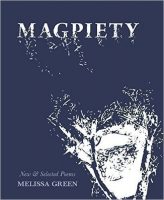November 25, 2015
Edited by David Sanders
Specimen Days
1562 – Lope Felix de Vega, dramatist/poet (Angelica, Arcadia), is born in Madrid, Spain.
1697 – Gerhard Tersteegen, German evangelist/poet (wrote in blood), is born.
1840 – Hugo Verriest, Flemish author/poet (Flemish Movement), is born.
1890 – Isaac Rosenberg, English war poet and artist (d. 1918), is born.
1924 – Takaaki Yoshimoto, Japanese poet, critic, and philosopher, is born.
1947 – Léon-Paul Fargue, French poet (b. 1876), dies.
1951 – Raden Mas Noto Suroto, Indonesian poet (Wayang Songs), dies at 63.

The world is made of coercion,
causes and mistakes,
but surely, a blue the same as the sky
hangs deep in our skulls.
Otherwise,
standing on fragile legs,
how could we ride the image of wings
to possess endlessly higher places.
—from “Possession” by Takaaki Yoshimoto (1924-2012)
“The world is made of coercion” —Takaaki Yoshimoto
World Poetry
Poet Chris Wallace-Crabbe wins the Melbourne Prize for Literature

Poet Chris Wallace Crabbe has been awarded the Melbourne Prize for Literature in "recognition of his outstanding contribution to Australian literature and cultural and intellectual life”. In a poem called And the World was Calm, Chris Wallace-Crabbewrites: "Poetry survives with its coppery glint of gnosis/ Along one edge/ It is a drug that endures/ Riding atop the bubbles of evanescence.” It is a drug to which he has been happily and healthily addicted since he was a student at the University of Melbourne, publishing his first book, The Music of Division, in 1959. Since then Wallace-Crabbe, 81, has taught and written poetry in the US, Italy and for many years at his local alma mater.
Pablo Neruda’s Love Nest in Santiago: Like his Poetry, it’s Filled with Passion
In the funky Bellavista neighborhood of Santiago, the capital of Chile, is a house that is as playful, quirky, colorful, political, historical and even lyrical as the great man who once lived in it. And it’s open to the public. Pablo Neruda, arguably the greatest poet South America has ever produced (Nobel Prize for Literature, 1971), started building the structure in 1953 for trysts with his mistress. Constructed piecemeal over five years on different levels of the hill, the house doesn’t look imposing or looming so much as dry-docked.
Poet Chris Wallace-Crabbe has been awarded the Melbourne Prize for Literature.
Recent Reviews
Letter of Recommendation: Christopher Logue, ‘War Music’
by Wyatt Mason
As an illiterate — which is how Thoreau, one of our supposed avatars of democratic life, saw those of us who have neither Greek nor Latin — I realize that it’s an act of public self-shaming to vouch for a favorite translation of Homer. But it’s even worse than that for me, given I know very little about English translations of the ‘‘Iliad.’’
Everyone’s Problem
by Jessica Bozek
In the dense forest straddling the Czech Republic and Germany, red deer do an about-face when they approach the site where a fence once marked the Iron Curtain between Czechoslovakia and West Germany. These deer have had no direct experience with barbed and electrified wire or gun-toting guards, removed more than two decades ago. The deer’s behavior substantiates the notion that memory can be inherited not only socially but also biologically. In a similar vein, two new books of poetry by U.S. women consider how bodies register trauma, often facilitated by extant systems and cultural values. Cathy Linh Che and Lizzie Harris balance personal traumatic experiences, widely considered indescribable, against the ethical necessity of imagining and depicting.
Portrait of a Coterie
by Cassandra Seltman
Felix Bernstein’s debut essay collection, Notes on Post-Conceptual Poetry, is not what you would expect from a 23-year-old, Brooklyn-based writer and artist. This is not a book of cosmopolitan post-internet lyric poetry. Instead, Notes begins with a long essay (including an appendix and footnotes) that mockingly critiques the various trends in American experimental poetry since the 2000s, charting the Conceptual Poetry scene that has revolved around Kenneth Goldsmith, Christian Bök, Craig Dworkin, Vanessa Place, Caroline Bergvall, Kim Rosenfeld, and Rob Fitterman.
Book Review: Talking to the Dead, by Rachel Hadas
by Amy Lilly
The poet Rachel Hadas, a part-time Vermonter, has taught English for 34 years on the Newark campus of Rutgers University. Her pedagogical focus has often been ancient classical poems and works influenced by them — Homer's Odyssey and Iliad, Virgil's Aeneid, Lucretius' De rerum natura, Dante's Inferno, Milton's Lycidas. She has translated works from the Greek, and her own poetry also plumbs the ancients. The poet Grace Schulman has noted that, in Hadas' poems, "antiquity illuminates the present."
Felix Bernstein’s debut essay collection, “Notes on Post-Conceptual Poetry,” is not what you’d expect from a Brooklyn-based writer.
Broadsides
The Greatness of William Blake
by Richard Holmes

There are many William Blakes, but mine arrived with the tigers in the 1960s. The first line I ever read by Blake was not in a book, but laid out in thick white paint (or should I say illuminated) along a brick wall in Silver Street, Cambridge, England, in 1968. It was not poetry, but prose: “The tigers of wrath are wiser than the horses of instruction.” It sent a strange shiver down my spine, as it did for thousands of other university students in England and America that year. It turns out that, according to The New York Times of December 28, 1968, exactly the same line from Blake’s “Proverbs of Hell” appeared on big posters at the conference of the Modern Language Association in New York. According to the Times it signified that “Radical Agitation Among Scholars Grows,” and it led to several arrests.
Editorial
by Michael Schmidt
In the 1980s, the World Anti-Doping Agency (WADA) banned excessive use of caffeine (anything over eight Americanos a day), putting coffee up there with methylenedioxymethamphetamine and tuaminoheptane (not to mention cocaine and strychnine) as a performance enhancer. In 2004 caffeine was removed from the list and, as it were, re-legalised. Earl Gray tea was never proscribed, though space tea was. As poetry becomes more of a competitive art, with substantial purses, National Days and even Olympiads – totting up the prizes over a four month period I reckon as much as £400,000 was in play in English-language poetry sweepstakes alone – it is time to consider regulation.
There are many William Blakes.
Drafts & Fragments
Meet the Muslim Teenager Using Poetry to Stop Young People Turning to Isis
17-year-old Aouda Ketrouci's words were used as part of a viral video created by #RejectISIS campaigners. Here, speaking to the Independent just hours before the terrorist attacks on Paris, she explains how easy it is for confused teens to be radicalised – and how she thinks the problem can be tackled
A Muslim teenager is using poetry to stop young people from turning to ISIS.
Poetry In the News
Saudi Court Sentences Poet to Death for Renouncing Islam

A Palestinian poet and leading member of Saudi Arabia’s nascent contemporary art scene has been sentenced to death for renouncing Islam. A Saudi court on Tuesday ordered the execution of Ashraf Fayadh, who has curated art shows in Jeddah and at the Venice Biennale. The poet, who said he did not have legal representation, was given 30 days to appeal against the ruling. Fayadh, 35, a key member of the British-Saudi art organisation Edge of Arabia, was originally sentenced to four years in prison and 800 lashes by the general court in Abha, a city in the south-west of the ultraconservative kingdom, in May 2014.
Robin Coste Lewis’ National Book Award Marks a Shift in How the Literary World Regards Black Poets
On Wednesday night, the National Book Award for poetry went to Los Angeles poet Robin Coste Lewis for her Voyage of the Sable Venus. The award would be out of the ordinary if only because this is Lewis’s first book; the last time the poetry award went to a debut was Marilyn Hacker’s Presentation Piece, in 1974. But it’s all the more significant because it points to a sea change in American poetry, and the formation of new values both on and off the page.
Ashraf Fayadh, leading member of Saudi Arabia’s nascent contemporary art scene, has been sentenced to death for renouncing Islam.
New Books
Justice by Tomaz Salamun
[Hardcover] Black Ocean, 152 pp., $18.85

Slovenian poet Tomaž Šalamun (1941-2014) is hailed as one of the most prominent poets of his generation, renowned for his impact on the Eastern European avant-garde movement. He authored over forty collections of poetry in Slovenian and English, experimenting with surrealism, polyphony, and absurdism. In this collection, which he was preparing before his recent death, he shows his mastery of sound, of uncomfortable twists of expectations, and reveals alleyways into humanity with sharp, minty lines amidst physical chaos and violence. Šalamun has helped shape an era of poetics with his electric imagination, refusal of boxed-in logic and custom, and sophisticated concision. His voice will linger on for years to come in the influence it has left with artists, writers, and readers. For a career born from a violent world, he has left a beautiful Justice behind.
Mayor Snow by Nick Thran
[Paperback] Nightwood, 80 pp., $18.95
Mayor Snow is about both the abdication and acceptance of responsibilities and inheritance: be they civic, personal, poetic. It begins with speaker-less evocations of corrupt and oppressive political atmospheres and ends with first-person narrative tales of domestic life in Al Purdy's refurbished A-frame. All of these poems work in a shadow, be they forebears, tabloids, cultural markers or government watchdogs.
Mexico in My Heart by Willis Barnstone
[Paperback] Carcanet Press, 240 pp., $23.99

Willis Barnstone is a literature in himself: poet, translator, interpreter, in one year he can range from Jesus to Sappho and Borges with calm authority and good humour. He re-translates the New Testament in a version Harold Bloom describes as ‘a superb act of restoration’. Borges himself declared, ‘Four of the best things in America are Whitman’s Leaves, Melville’s Whale, the sonnets of Barnstone’s The Secret Reader, and my daily Corn Flakes…’ Mexico in My Heart is the essential Barnstone, drawing on fifteen collections, poetry from six decades of writing and from several continents. He went to Mexico at the age of fifteen and, gathering languages and literatures, has never stopped learning.
Emmett Till in Different States: Poems by Philip C. Kolin
[Paperback] Third World Press, 100 pp., $18.95
The poems in Emmett Till in Different States span more than 7 decades of events in Emmett Till’s legacy from the 1940s to the present. In them Philip Kolin shows how Emmett Till’s importance has expanded from being a Civil Rights martyr to becoming a choric, heroic commentator on the tragedies of Civil Rights injustices (e.g. Medgar Evers’s murder, the Freedom Riders, the murders of Chicago’s children, Trayvon Martin), and a voice of conscience for America to hear and heed. The title of this collection points to the multiple ways we can see Emmett Till through time and space (e.g. geographic, historical, psychological, and theological.)
Magpeity: New & Selected Poems by Melissa Green
[Paperback] Arrowsmith Press, 136 pp., $20.00

"In the same way that Eliot's lantern throws the pattern of nerves on a screen, I see each of my books as connected to a psychic darkness that called out for a different articultion both in form and language," writes Melissa Green. Green's first book, The Squanicook Eclogues, published in 1987, was cheered by writers such as Joseph Brodsky, who observed: "Here, by the grace and wisdom of the language in which 'rhyme' rhymes with 'time,' comes the poet who commits everything she touches to your memory."
Correspondences
The History behind the Feeling: A Conversation with Claudia Rankine
by Aaron Coleman
Claudia Rankine exudes a particular kind of poise as we sit across from each other; a poise that seems to me a commitment to attentiveness, to witnessing, as genuinely as we can, the world in which we live—and our complicated selves. She speaks thoughtfully about everything from childhood reflections and MFA experiences to altered photography, authentic justice, intimacy, suspicion, and her writing process. And throughout, I can’t help but think about the magnitude of the year that’s passed since Claudia Rankine first released Citizen: An American Lyric. Rankine, who had already accomplished and grappled with so much of American poetry and culture in her first four books, including Don’t Let Me Be Lonely (to say nothing of a wildly busy year, including more than a few Citizen interviews), continues to embody a subtly compelling energy and sensitivity not only toward the craft of poetry, but also toward the question of what we as humans can be and do for each other. For Rankine, it’s clear that the present moment—and all it carries—is a crucial one . . .
Kenneth Goldsmith Interview: ‘I wanted to take Walter Benjamin off the pedestal and on to the coffee table’
by Sukhdev Sandhu

How apt to be meeting Kenneth Goldsmith at Eisenberg’s. An old-school Jewish diner (est 1929) in New York’s Flatiron district, and these days a slightly self-conscious throwback to an era long before the neighbourhood was slathered with nail salons, salad bars and frozen yoghurt stores, it has a board outside that declares “You either get it or don’t.”
Interview with A. E. Stallings
by Light Box Poetry

A.E. Stallings is an American poet who studied Classics at the University of Georgia and Oxford. She has published three collections of poetry, Archaic Smile, Hapax, and Olives, and a verse translation (in rhyming fourteeners!) of Lucretius, The Nature of Things. She has received a translation grant from the National Endowment for the Arts, and fellowships from United States Artists, the Guggenheim Foundation, and the MacArthur Foundation. She is also a member of the American Academy of Arts and Sciences. She speaks and lectures widely on a variety of topics, and has been a regular faculty member at the West Chester Poetry Conference and the Sewanee Summer Writers’ Conference. Having studied in Athens, Georgia, she now lives in Athens, Greece, with her husband, the journalist, John Psaropoulos, and their two argonauts, Jason and Atalanta.
A.E. Stallings is an American poet who studied Classics at the University of Georgia and Oxford.
Envoi: Editor’s Notes
Because surely summer, and the end of summer, is just around the corner —
Promenade
by Joshua Mehigan
Bowne Park, Queens. Labor Day Morning.
A man stumbles across a wedding.
This is the brief departure from the norm
that celebrates the norm. The wind is warm
and constant through the field set at the heart
of the impervious borough, yet apart.
This day and this place, born from other days
and places as a parenthetic phrase,
and this sky, where a businessman may write
the purposeless, brief beauty of a kite,
are like the possibilities of love.
The kite leaps up, rasps fifty feet above
until it is almost unusual,
and fastens there. The wind's predictable
but private method with it sets it free
to dive toward greater plausibility
and finish its digression in the wide
municipal burlesque of countryside.
What distantly appear to be festoons
of white, white bunting, trefoils of balloons
in white, improve the black affectless trees
where three girls stand like caryatides
patiently holding crepe bells to a bough.
Something exceptional will happen now.
But first, the fat, black, wind-swept frock will swerve
past the buffet to steal one more hors d'oeuvre.
He floats like an umbrella back to where
his book is, smoothes his robe, and smoothes his hair.
Yellow grass undulates beneath the breeze.
Couples file through the corridor of trees
towards rows of folding seats. Bridesmaids unhook
from groomsmen's arms. Every face turns to look;
and when the bride's tall orange bun's unpinned
by ordinary, inconvenient wind,
all, in the breath it takes a yard of hair
to blaze like lighted aerosol, would swear
there was no greater miracle in Queens.
Wish is the word that sounds like what wind means.